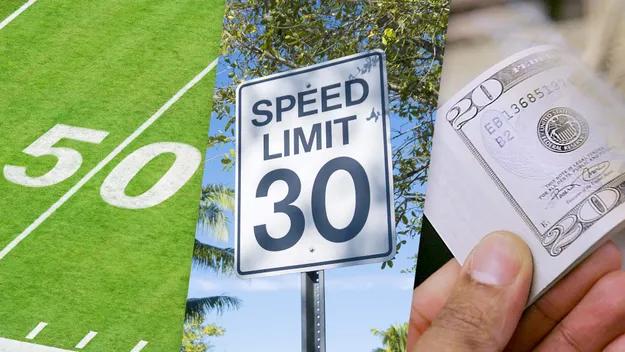A lot of people are stressed out about a lot of things right now. Markets are down. Prices are up for many of the things you need to buy. Interest rates are rising and make it a confusing time to consider buying or selling a house, or making other major financial decisions. This all adds to the stress you may be feeling about your job, the ongoing pandemic, and the health of loved ones.
If you’re stressed out about what is happening right now in the stock market, there is a better way to invest.
This isn’t about a way to guarantee you a higher return. (For the record, if anyone guarantees you a higher return, stop reading that article or end that Zoom call). This is about having a plan for how you invest. It should prepare you for times like this when the market quickly falls. It should also prepare you for when the market quickly goes up (like it did right after the pandemic started). It should be a plan that lets you stay invested for the long term.
But this plan is not the same for everyone. Because each of us is in a different situation. Different people can stomach different amounts of risk. That’s based on what our goals are, how our brains are wired, and what we have lived through. When my dad died, I went to the small bank in the Kansas town where he’d lived and found a stash of cash in his safety deposit box. He had lived through the Depression. That was a time of deflation. Keeping cash in the safety deposit box was what he needed to feel safe, based on the life that he lived. That’s not my plan, but it was his.
Everyone is different.
Yet everyone faces the same ups and downs in the public markets. So what’s your plan?
- First, answer the question, “Why are you investing?” It’s not a plan if there aren’t goals. If you want to retire in 30 years, you may be able to bear more risk in order to maximize the growth of your portfolio than you would if you hope to retire in three years.
- Then, determine what balance of bonds and relatively more risky stocks is comfortable for you. If you reduce the percentage you have in stocks, you may feel better when markets go down, but you have to balance that with feeling like you’re missing out during times when the markets go up.
- Focus on controlling the things that are in your control—like saving more and spending less.
If you find yourself tempted to make a change, think carefully about whether you’re moving from one long-term plan to the next long-term plan. Trying to time short-term moves has more in common with gambling than with long-term investing plans.
When I look back over my past 50 years as an investor, I can make a long list of all the shocks that made markets go down. People are talking about high interest rates now. I remember in the early 1980s buying an apartment in Brooklyn with a loan that had a 15% interest rate. I didn’t like it, but I didn’t have a choice, because I needed a loan if I wanted to buy that apartment.
We have to accept that these shocks will happen. We should prepare for them rather than try to predict them. This time there is inflation, fear of a recession, a war in Ukraine, and increased volatility. We don’t know when this will end. We also won’t know exactly what will cause the next shock or when it will occur. The only thing I can guarantee is that it’s going to be a surprise (because if it weren’t, the market would have priced that in).
As a long-term investor, here’s the good news: You can capture the returns of the market without having to accurately forecast (which is great, since almost no one is consistently good at that). So in times like this, when stock prices go down, the market is setting prices so shares will have a better return and attract buyers. When you see a big drop, prices are lower so that, going forward, the people who buy have a greater chance of having a positive outcome.
That doesn’t feel great if you bought Netflix in the last couple years, but that’s why I don’t encourage people to buy individual stocks. I love that people can easily diversify and spread out their risk. When choosing how much you want invested in stocks, balance the regret you would feel when markets go down with the regret of missing out when things turn around.
When you can be a long-term investor and think in terms of decades rather than years, you have the greatest chance of capturing the power of compounding. Those little extra gains add up over time. It helps explain why over the past 95 years (including all those shocks that have happened), the return for the general stock market has been around 10% a year.1 Markets rarely return 10% in any one year, but over time, long-term investors have been rewarded with that longer-term average. I think that’s amazing. But I also know it’s tough to stick it out. Because it means that you have to get through these tough times, even when the market has gone down and down.
I don’t like to tell people what to do. I never told my dad what he should do. But I do want to help. I know how stressful this can be. I have always tried to share my perspective on investing with the hope that it can help people be long-term investors who have the greatest chance of meeting their goals. I know that right now is tough for many people. But I have seen over my career how many people have benefited from creating a plan that made sense to them and that they could stick with. It’s not always easy, but it’s the best option I know of.
And it’s never too late.
So what’s your plan?
Source: Dimensional Fund Advisors, David Booth.
How we help
We can help take the effort out of this for you by demonstrating how this would work for you and your family and providing you with one cohesive Holistic Lifestyle Financial Plan.
You can arrange a meeting by clicking here to access my diary, email info@smartfinance.ie or call 087 8144 104.







